How to Keep Produce Fresh Longer
In an attempt to reduce the amount of kitchen waste my family produces, I’ve done a good deal of research and put in place several of my findings. On the off chance that your family also struggles with food waste, these 17 tips on How to Keep Produce Fresh Longer may come in handy for you too!
So, a ‘friend’ posted this struggle.
She goes to the grocery store and loads her cart with bright red, fresh strawberries because she just knows that today will be the day that her teenage son actually wants a handful of strawberries after school instead of stopping on the way home from school for a bag of Doritos. OR…she fills her shopping cart with a rainbow of brilliantly colored vegetables for the hearty and healthy salads they will be eating for several meals this week, only to find that they have several showings scheduled and so end up grabbing pizza instead.
As much as I do appreciate the benefits of compost and building my compost pile, I’d rather it be my strawberry caps and leaves that get composted and not the entire strawberry! Can I get an ‘AMEN’?
I don’t know if this fact will make my friend feel any better, but she is not alone. Sadly, the average American family tosses 25% of their groceries into the trash…yikes!
If your ‘friend’ has the same struggles with keeping food fresher longer, I’ve gathered a few tips on how to keep produce fresh that you can share with her.
How to Keep Produce Fresh Longer
Some of these links may be affiliate links and I may earn a small commission off of the sale of these products, but the price you are charged is not affected. You can see my full disclosure policy here.
- Give your berries a vinegar bath. The vinegar kills any bacteria spores that could be on the fruit, thereby reducing the opportunity for the mold spores to multiply. I use a ratio of 1 part vinegar to 3 parts water.
 Once the berries have had their vinegar bath, I remove them to a colander or towel or salad spinner to make sure they are completely dry before I store them in the fridge. I also use a berry storage container that maintains an appropriate level of oxygen and carbon dioxide and has a vented tray that prevents the berries from sitting in moisture. If you don’t have a berry storage container, line a container with a couple of pieces of paper towel and layer the berries between more paper towels. The secret is to minimize moisture.
Once the berries have had their vinegar bath, I remove them to a colander or towel or salad spinner to make sure they are completely dry before I store them in the fridge. I also use a berry storage container that maintains an appropriate level of oxygen and carbon dioxide and has a vented tray that prevents the berries from sitting in moisture. If you don’t have a berry storage container, line a container with a couple of pieces of paper towel and layer the berries between more paper towels. The secret is to minimize moisture.Table of Contents
- Some fruits and vegetables will produce ethylene, a gas that initiates the ripening process. Ethylene can cause premature ripening in some foods, while in others it can actually cause damage and the more ripe fruit is, the more ethylene gas it emits. To reduce premature ripening or unnecessary spoilage of your produce, do not store ethylene producing fruits and vegetables with those that are sensitive to it.
- ETHYLENE PRODUCING FRUIT AND VEGETABLES:
- Apricots
- Apples
- Avocados
- Ripening bananas
- Cantaloupe
- Figs
- Honeydew
- Kiwi fruit
- Mangoes
- Nectarine
- Papayas
- Peaches
- Pears
- Persimmons
- Plums
- Potatoes
- Prunes
- Quince
- Tomatoes
- ETHYLENE SENSITIVE FRUIT AND VEGETABLES:
- Unripe bananas
- Green beans
- Belgian endive
- Broccoli
- Brussels sprouts
- Cabbage
- Carrots
- Cauliflower
- Chard
- Cucumbers
- Eggplant
- Leafy greens
- Lettuce
- Okra
- Onions
- Parsley
- Peas
- Peppers
- Spinach
- Squash
- Sweet potatoes
- Watercress
- Watermelon
- ETHYLENE PRODUCING FRUIT AND VEGETABLES:
- And because there is an exception for every rule, storing apples with potatoes will actually prevent potatoes from sprouting eyes for up to 8 weeks!
- While we are talking about potatoes, moisture and light will cause them to spoil at a faster rate, so store them in a dry, cool, and dark place.
- Consider an ethylene gas absorber in your produce bins as a great way to reduce that decaying process.
- Use your humidity drawer properly. When you are in the produce aisles of the grocery store, be mindful of what fruit and vegetables are against the wall and under the misters. Only those fruits and vegetables should be in your humidity drawer. This means that onions, potatoes, mushrooms, garlic, apples, oranges, etc… should not be in the humidity drawer.
- Wrap mushrooms in paper towels before storing them.
- Don’t separate your bananas, but do wrap their stem in plastic wrap.

- Let avocados ripen at room temperature (putting them in a bag with your bananas will speed up that process), but once ripe, store them in your refrigerator.
- If you buy your leafy greens in a plastic tub, take them out of the tub, wrap them loosely in a paper towel, and then return them to the plastic tub. The paper towel will absorb any unwanted moisture.

- Store your lemons and limes in a container of water in your refrigerator.

- Parsley and Cilantro will hang around longer if you trim their stems, place them in a jar of water, cover them loosely with a plastic bag, and place them in the refrigerator. Change the water as needed. I was gifted with this herb saver several years ago and have had great success with it as well.
- For basil, do the same but skip the bag and refrigerator. Basil does best at room temperature.
- This principle also helps extend the life of asparagus and scallions. Trim the ends of the asparagus, but leave the roots on your scallions. You can keep your scallions on your counter if you chose, but if you want to pop them in the fridge then cover them lightly with a plastic bag. Change the water as needed.
- Remove your head of celery from the grocery store plastic bag (it traps ethylene gas) and wrap it in aluminum foil. Wrap the foil tightly enough so that too much moisture doesn’t get out but not so tightly that ethylene can’t escape. Keep the celery head whole and don’t crimp or seal the foil.
- To further extend the life of my fruit and veggies, I have lined my refrigerator produce bins with these inexpensive and lightweight foam liners which absorb moisture and odor and encourage air circulation.

- Are your refrigerator and freezer at the right temp? The FDA recommends 40º for your refrigerator to keep food fresh longer. If in doubt, an inexpensive Refrigerator/Freezer Thermometer can come in handy.
- Learn how your refrigerator works. My side by side refrigerator is the very coldest in the top left-hand corner where the air comes in from the freezer and at the bottom as cold air falls.
- Use a thermometer to find the coldest and warmest spots in your refrigerator and store appropriate food there. For instance, I keep a large pitcher of herbal ice tea at the top left so it is always ‘ice-cold’ and avoid storing lettuce, celery, and other water-heavy fruits and vegetables there.
- While I haven’t tried it yet, many readers have told me they have had great success storing blueberries, raspberries, blackberries, and strawberries in the refrigerator in sealed mason jars. Critical to this process is that the jars and the berries should be bone dry. It is actually recommended that you don’t wash the berries before you store them in the mason jar.
What are some of your tips for How to Keep Produce Fresh?
I’m a big believer in crowdsourcing, so please do share your tips on how to keep produce fresh to the rest of our family of readers! You can comment below or email me at [email protected].
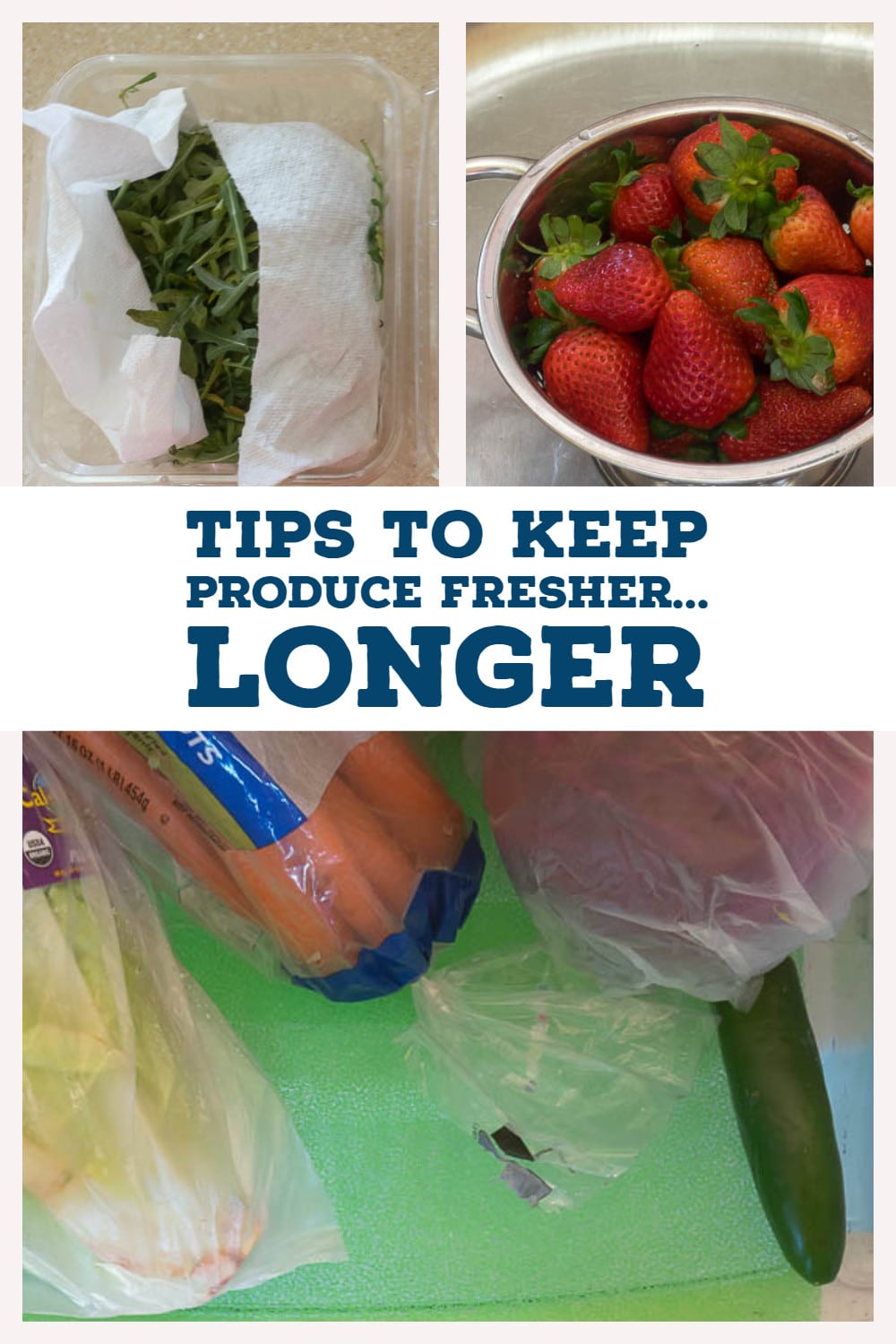
And if you want to refer back to these tips on How to Keep Produce Fresh, then bookmark this page or pin the following image.
Thanks again for spending a few minutes of your busy day with me today.
Please know that I welcome each and every comment that comes my way. If you want to make sure you don’t miss future content, pop your email in the beige box up on the right or click here. I usually send out 2-3 emails a week, so I won’t inundate your inbox…believe me, I’m sensitive to an overflowing email inbox!
Printables and knit patterns are available to all of my subscribers in the Subscriber Benefits Library. I will continue to add patterns and printables to this page as we go along.
You can also access all the products I referred to in all of my posts on my brand new Nourish and Nestle page on Amazon. You can access it here.
So, if you’d like to get in on the ‘subscriber benefit’ action, simply subscribe to Nourish and Nestle here or using the form on the right sidebar. It’s towards the top a bit. I have sent all my subscribers the link to the Subscriber Benefits Library, but if you missed it or misplaced it, drop me a line.
Until next time…
Hugs,


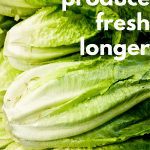
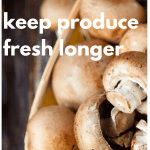
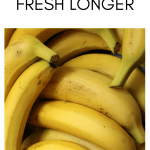
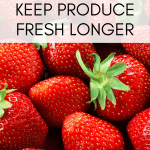
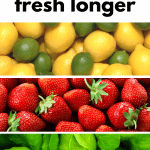


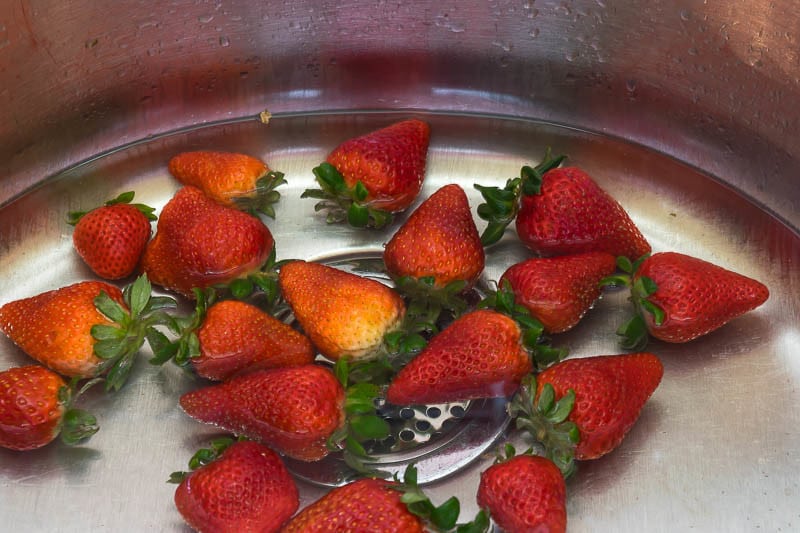
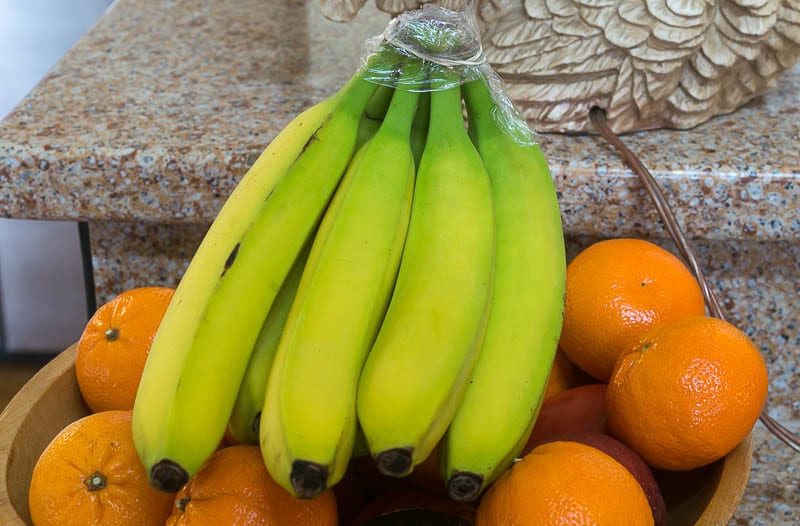

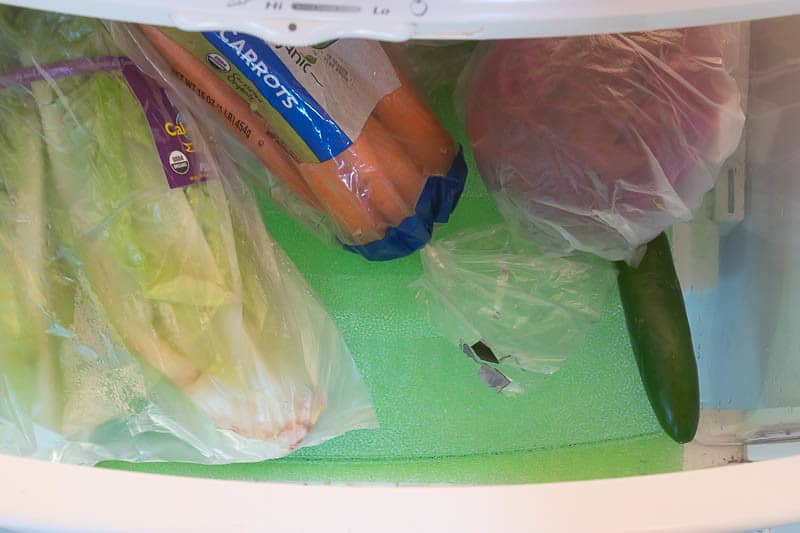


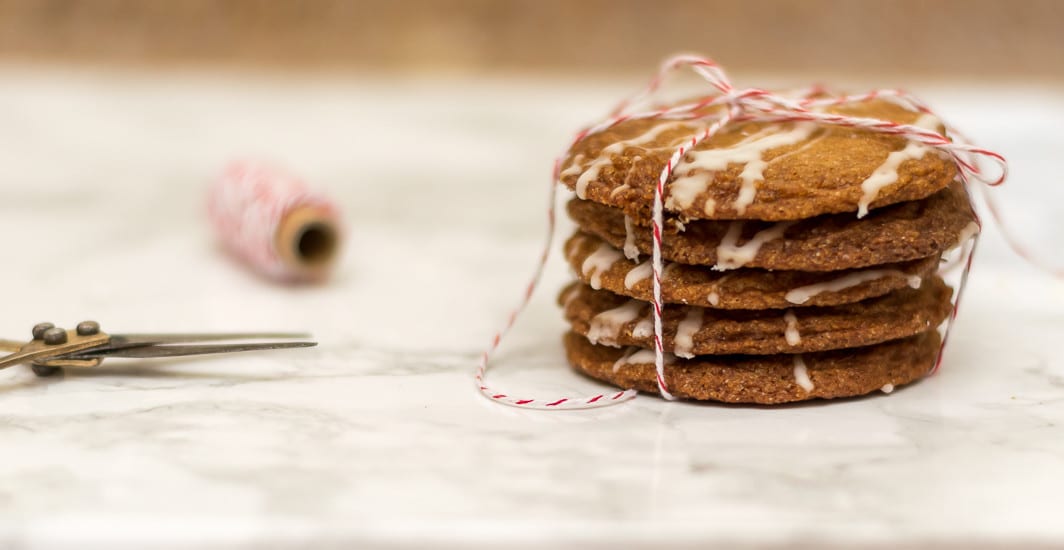

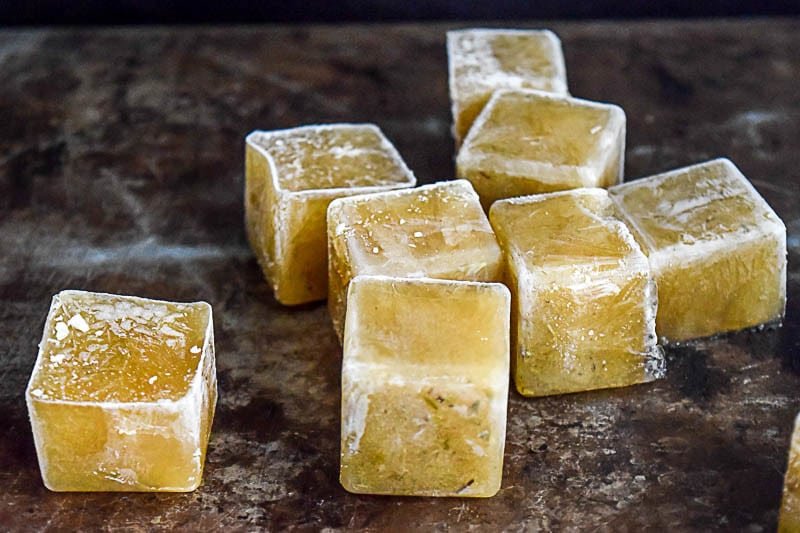
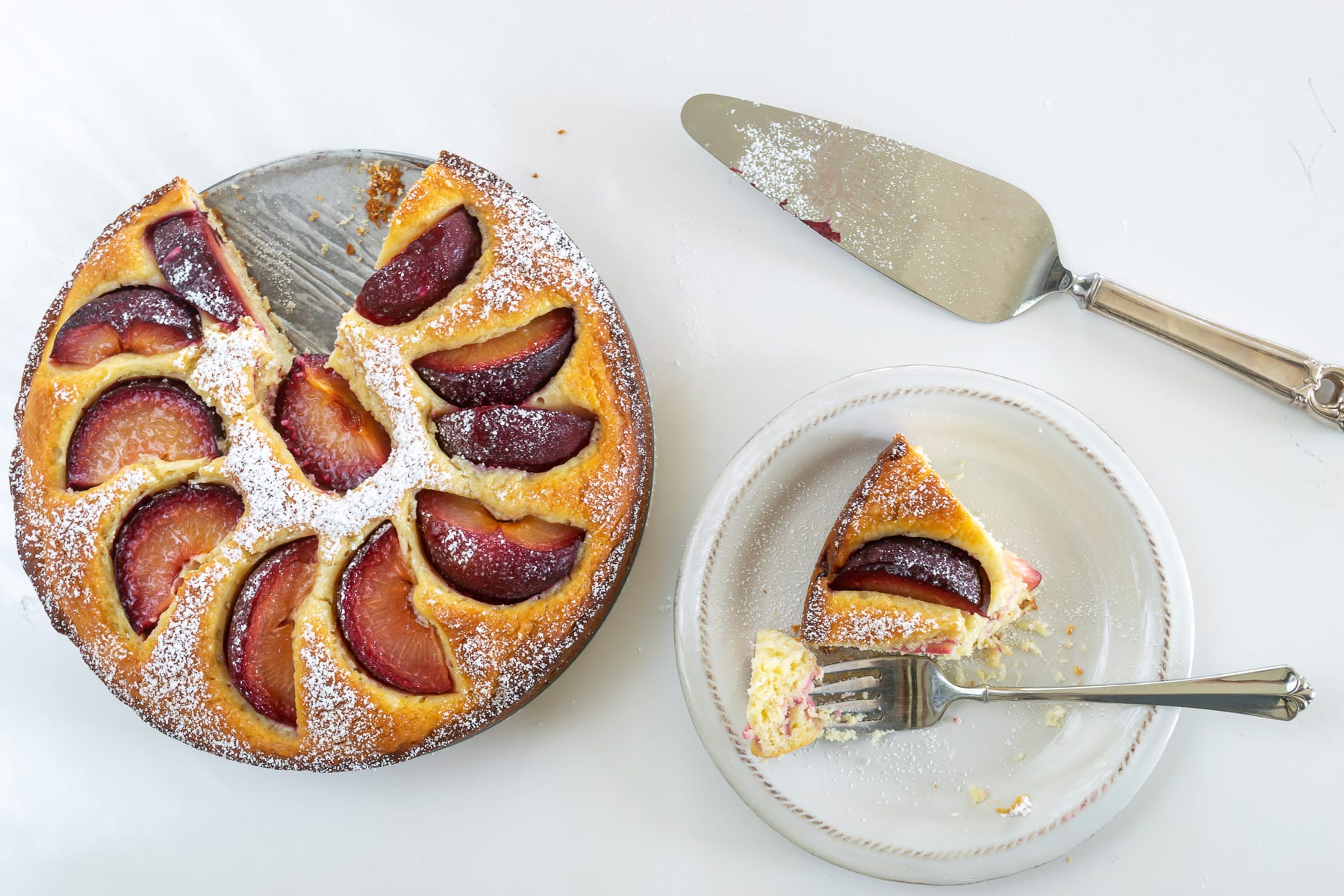
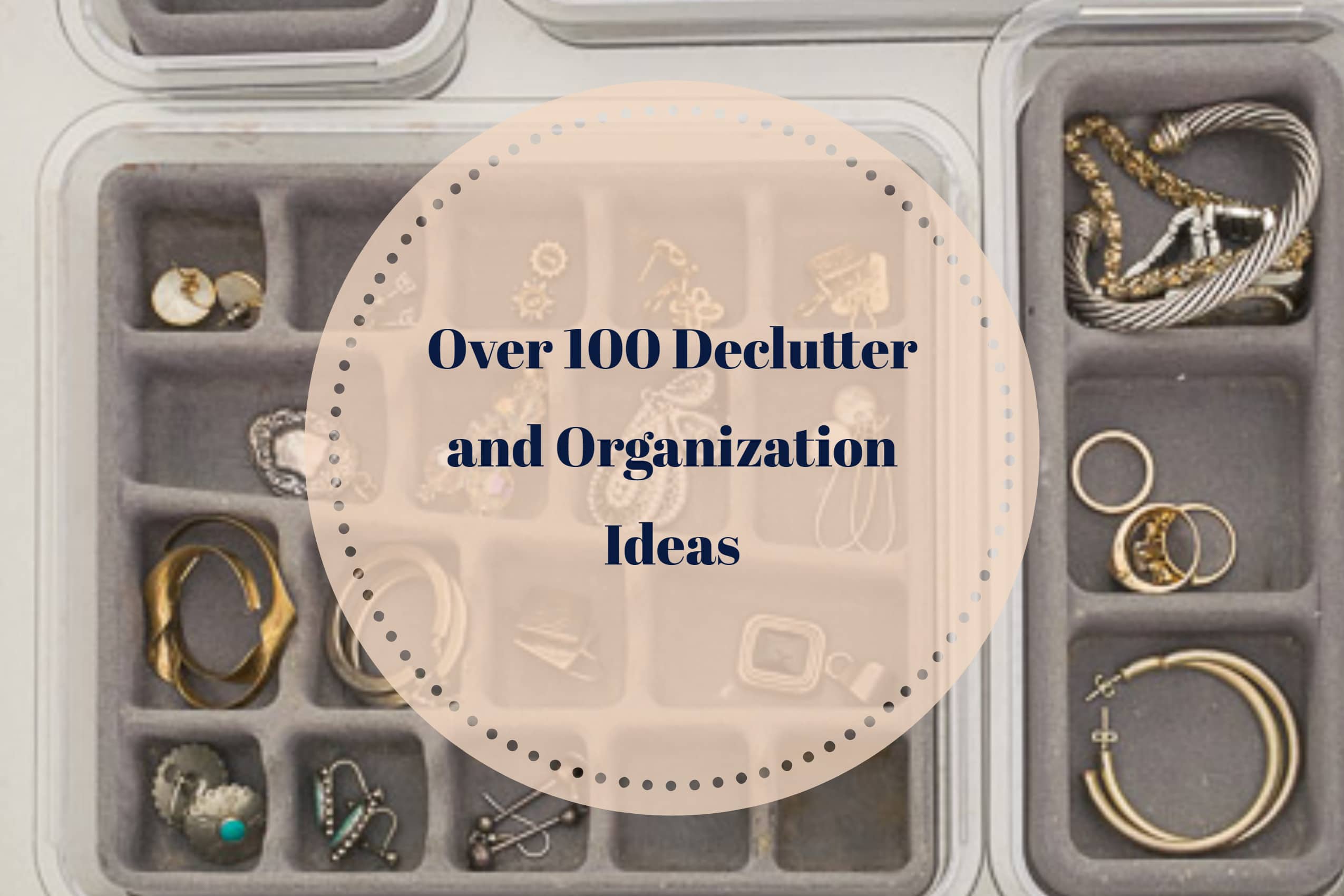
Love these tips. I have been struggling with scallions going bad so I’ll try the tips for those. I also never thought about wrapping mushrooms in paper towels so I’ll try that. I haven’t had problems with my lemons & limes going bad but I’ll try the water to see if they stay more fresh.
We eat salad pretty much every day…sometimes more than once a day so we go through a lot of produce.
The only other tip I can think of has to do with meal planning. I go through my fridge at least once a week, sometimes twice & mentally list the foods that need to be eaten within a day or so. Then I plan meals around those foods. If I just can’t get them into meals I try to freeze them for cooking in the future. I think it just takes practice to prevent food waste starting with buying only what you’ll eat to being willing to get creative with leftovers.
Love this post & the new ideas.
Hey Jenny,
Meal planning is key! I used to be very good at it, then fell off of the wagon, and now I’m better at it.
I am so glad you will use some of the tips…always happy to help my friends save a few $$$$.
Hugs, Lynn
Loved reading your newsletter, Lynn. I had no idea what a flange edge pillow was..(now I know! ) I loved reading all the tips for keeping produce fresh. The post about wrapping your celery in foil is true. I do that as soon as I bring it home and it keeps fresh and crisp for ages. If you buy blueberries, put them all into a glass jar, “unwashed”, and they will keep for several months! I know, scary when you think about the “hows and whys”, of that, but it is a fact. Only wash them as you need them. You don’t want to wash off their “bloom” I think that is what keeps them protected from spoiling. But, I can honestly say I have kept fresh blueberries in a jar for 3+ months without one berry spoiling. Hope you’re enjoying these Spring days!
Thanks so much Colleen for that tip! We eat an incredible number of blueberries, so I’ll be giving that a try soon.
Hi Lynn,
I have a tip for celery: when you bring it home, wrap it ina dampened paper towel, then wrap it in aluminum foil. It will keep fresh for a couple of weeks!
Really? I need to give that one a try Lesley! Thanks for the suggestion my friend.
Thank you so much! I love the produce fresher post. I will definately be using it. Thank you also for all your research on the subject. You have everyone a lot of time. 🙂
You are so very welcome Sherry!
I am always trying to find out newer/better ways to do things and love sharing them with my fantastic readers!
Thanks for taking the time to send in your kind comments.
Have a great day, my friend.
Hugs, Lynn
I love these tips! There are some really good ideas I never heard of and I can’t wait to implement them. My berries always get mushy too quickly so I’m definitely going to try the vinegar bath. I’m also going to look into the foam liners for the the fruit and veggies drawers. Thank you for sharing!
Good Morning Mikaela!
Thanks so much for coming by and leaving your kind comment.
I have been doing the ‘vinegar’ tip for years and I really do believe that it extends their life. Just make sure they are good and dry before you refrigerate them.
Hope all these tips help!
Have a fantastic day my friend.
Hugs, Lynn
These are really helpful. As to the scallions, I have been putting the root ends in a glass of water on the counter after I cut off the green, and they have been producing more green for ages. Just keep refreshing the water.
My mushrooms always go bad, so I’m going to follow your tips.
Thanks so much!
Hi Morven, I’ve been think of doing that with my scallions and now you’ve encouraged me.
Thanks!
Hugs,
Lynn
Usually before we go away for an extended period, I’ll roast whatever vegetables are left (potatoes, carrots, onions, garlic, etc) and freeze them after they’ve cooled. I’ll label them “Roasted Vegetables for Soup” and then make soup when we return.
Mary,
That is a brilliant idea! I will be adding it to the post.Thanks so much for sharing it.
Hugs, Lynn
Not long ago I read a tip about putting strawberries (whole) in mason jar in the fridge would make them last longer. Well, I tried it and it worked! I have a large mason type jar (holds a whole pint of LARGE berries) that I use…I put them in the jar, put a piece of paper towel across the opening and screw the lid down. Store in fridge and remove as needed. DON”T wash them first, just take them straight from the package to the jar! I just finished a jar that has been in my fridge 13 days! No sign of spoilage, drooping, mush….perfect as the day I put them in there! For scallions, I cut the floppy green ends off, line them up and wrap the whole bunch in piece of paper towel then put in plastic zipper closing bag….keep in my fridge for 2 weeks or more! Once again, don’t wash them until you’re ready to use ’em. Whole heads of lettuce, I core (smack it on the edge of the kitchen sink and the whole core comes out easily), wrap in 3-4 pieces of paper towel, seal in plastic bag (I use the bag it came in closed with twist tie) – lasts 2-3 weeks that way! Celery, I usually take apart and dice up about 1/2 of it and freeze for cooking then wrap what’s left in paper towels and put back in its plastic sleeve and close with twistie and that, too, lasts for weeks! There are only 2 of us and 1 isn’t a celery fan, so it lasts a long time around here, but this keeps it fine for salads, etc. Thanks for the other great ideas!
My daughter suggested that I put berries in tightly sealed Mason jars and put them in the refrigerator. I have been able to keep the berries fresh with no mold for several weeks.
Thanks so much, Ruth.
We eat a lot of berries, so I’m going to give this tip a try. I really appreciate you sharing what works for you so that we can all learn.
Hugs, Lynn
We get great advice from the people at the farmers markets. One great tip is dampen a hand towel squeeze out any excess and wrap carrots in them place in veg drawer-use this tip with lettuce, brocolli, cauliflower, bok choy, celery, cabbage. it truly works-be sure to keep the towels around the veggies moist.
thanks
Rosalie
That’s a fantastic tip, Rosalie. Thanks so much for sharing. Do you only use the towel, no plastic wrap in addition? And do you wrap each vegetable separately?
Lynn
Keep your avocado fresh after it’s cut open- leave the stone in.
Hi Rita,
That’s a great tip! I eat a half of an avocado almost daily, so luckily I learned that trick a long time ago. Need to make sure it is in the post.
Have a great weekend.
Lynn
Mason jars are good for other than strawberries. I keep radishes, baby carrots, celery etc. in mason jars in frig and they keep (just about) forever.
Thanks Marian,
Looks like I’m slow to that storage medium! I need to check it out.
Lynn
Hi Lynn..I have been doing some experimenting on the fruit storage situation. As I mention a few months ago..blueberries will keep forever in a glass jar with a lid. The same goes for strawberries. Do not wash until ready to use. I now have been storing blackberries and raspberries in lidded jars too and they are keeping very well too. At least two weeks. I am also storing my cherry tomatoes in a jar with a lid and I’m going into my 3rd week now without any spoiling or even wrinkly skin! Again, do not wash anything until you use them. As for Avo’s, I have found that they continue to ripen in the fridge after they’ve ripened on the counter. So, the next batch I buy, I am going to experiment by putting one in the fridge to see if it will ripen in there right from the start. In my mind all the fruits are staying fresh because they aren’t being exposed to the air and the glass keeps them extra cold. I don’t know! Oh..and I’ve also noticed that pears will continue to ripen in the fridge as well. The things I’m learning! (In my old age..haha)
Thanks Colleen,
Your kitchen sounds much like mine…one big science experiment! Blueberries rarely last long enough in my home to go bad, but raspberries are another story! The next time I buyt raspberries, I will give this a try.
I really do appreciate your experimentation and sharing it with us.
As it relates to avocados, I typically let them sit on the counter until they just begin to ripen and then refrigerate them. I have stored green ones in the fridge and don’t believe that they ripen in a timely manner, but I haven’t done a full experiment on that.
Please let me know what you find.
Hugs, Lynn